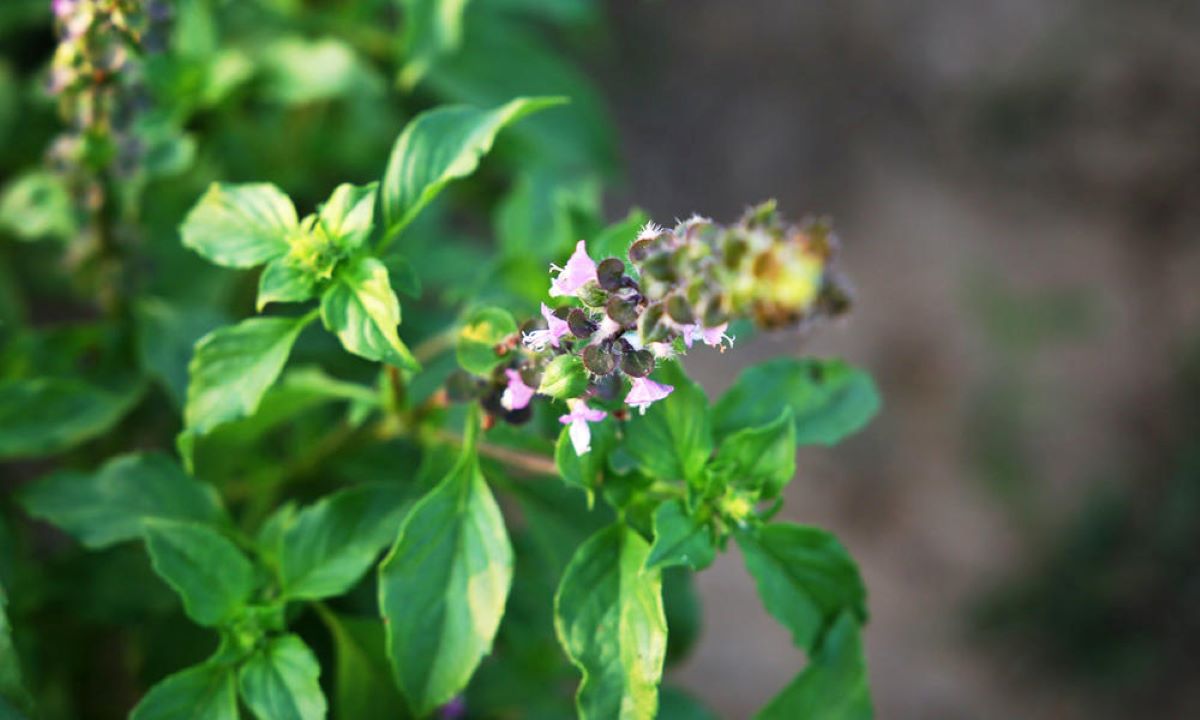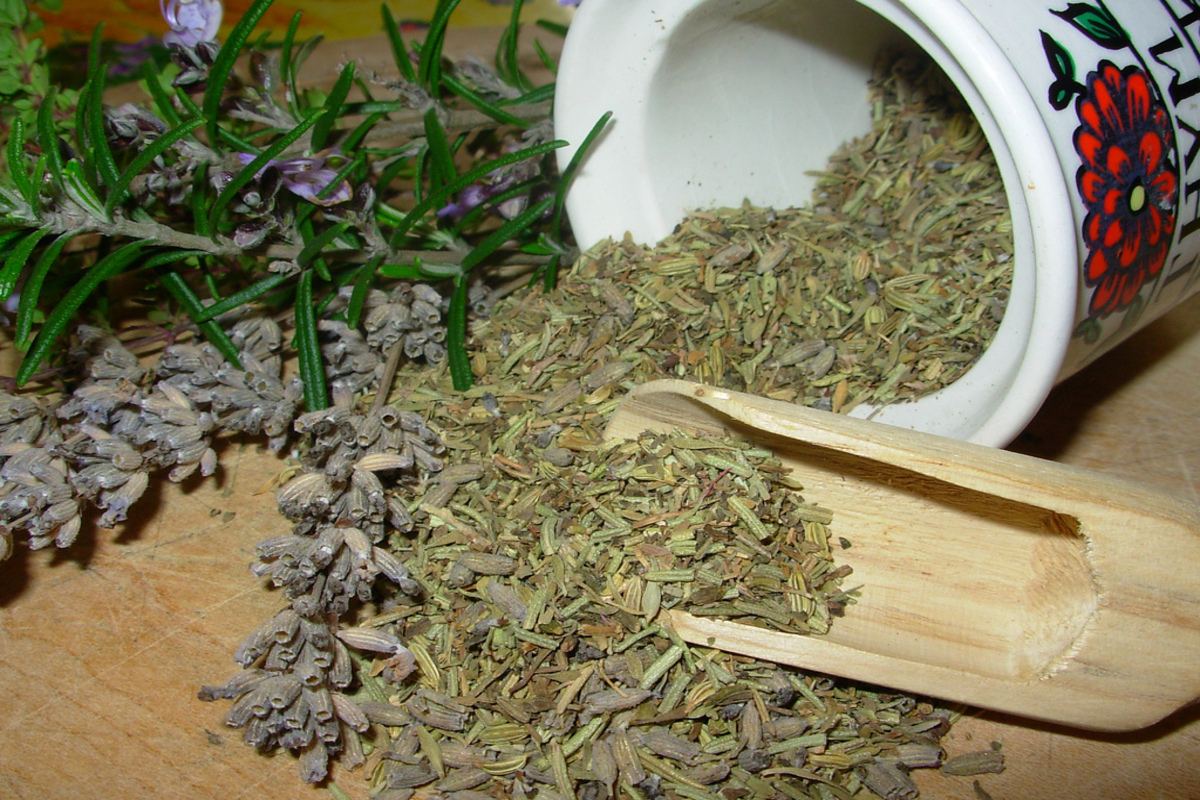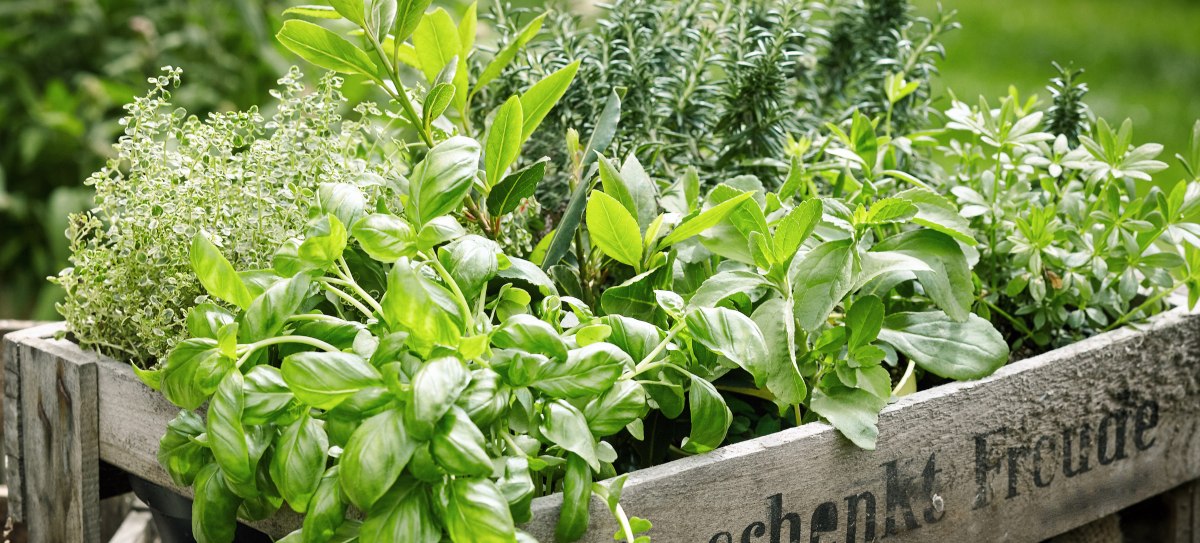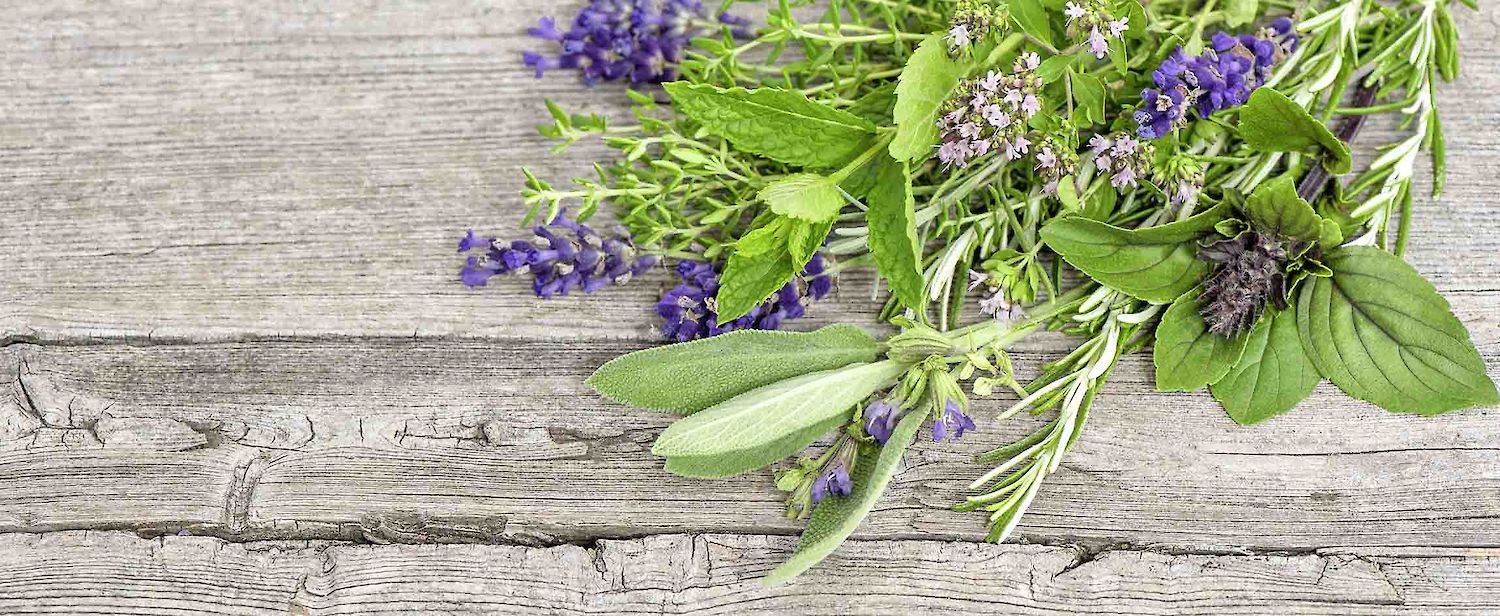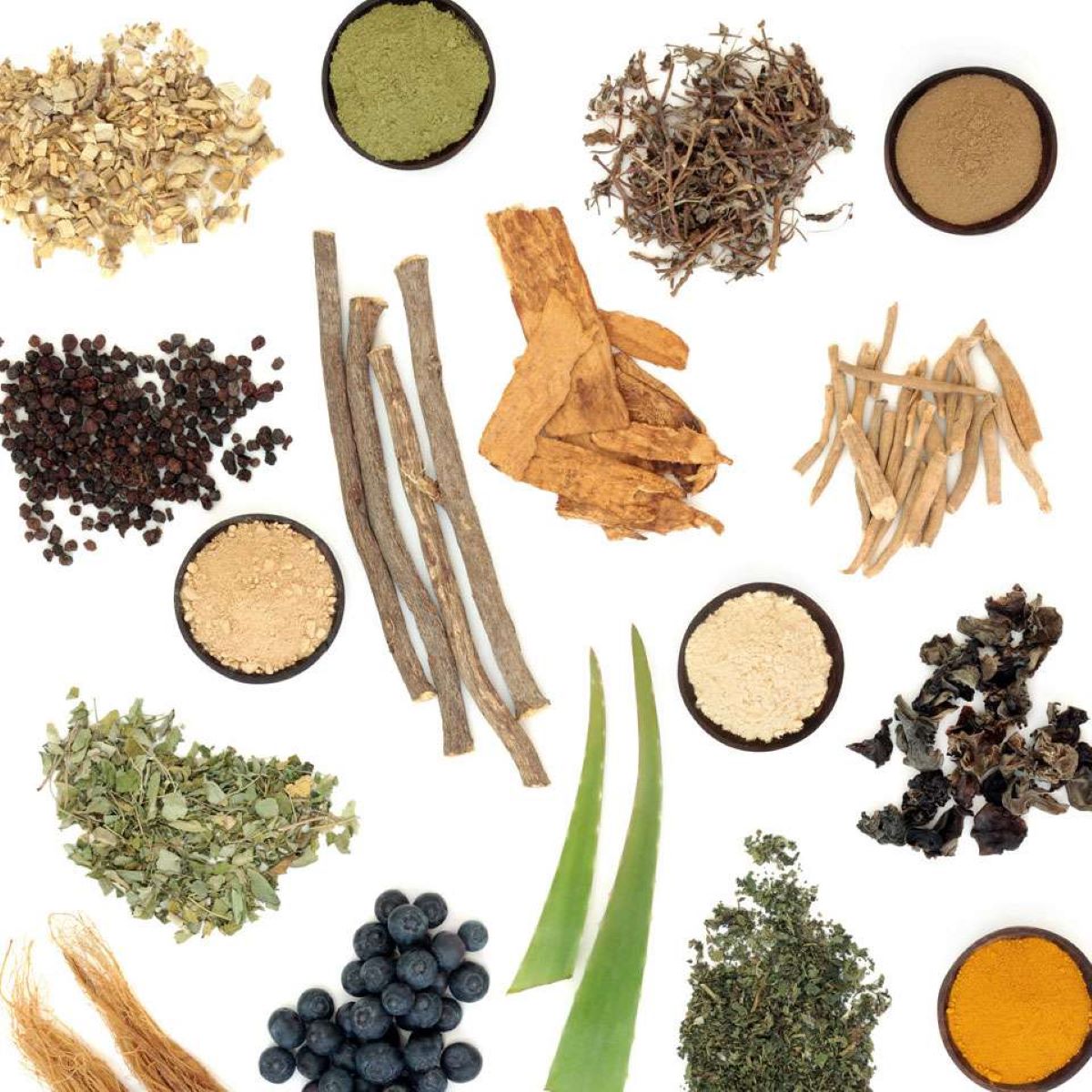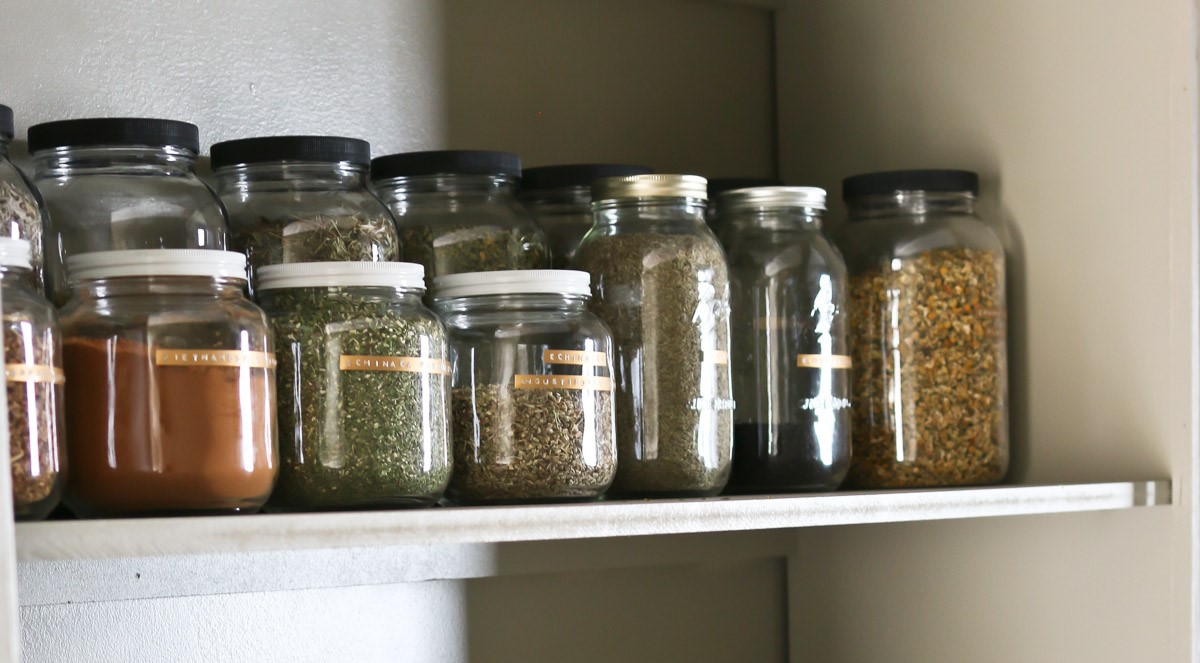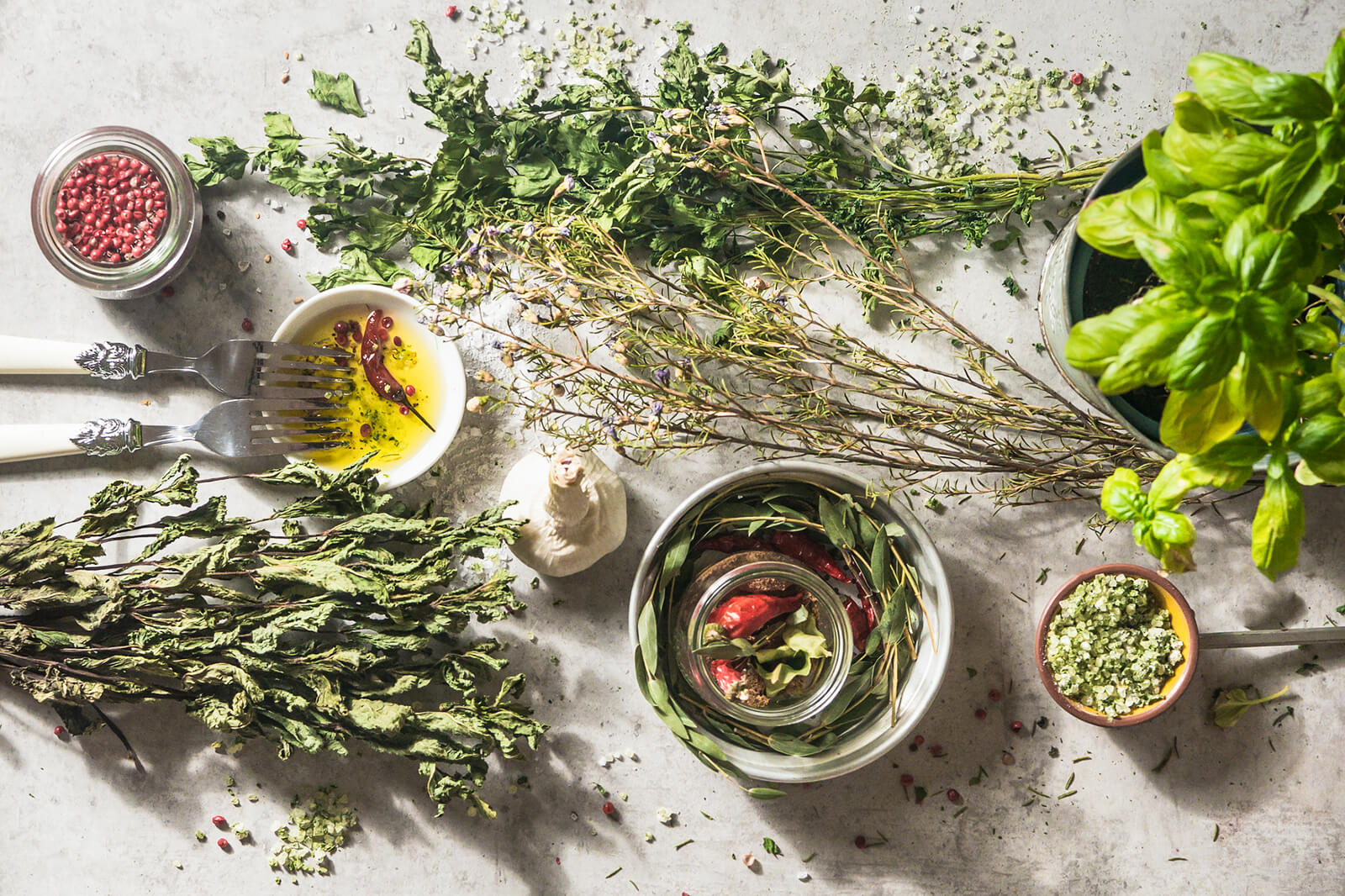Home>Gardening News and Trends>Latest News>What Herbs To Avoid While Breastfeeding


Latest News
What Herbs To Avoid While Breastfeeding
Published: October 3, 2023
Stay updated with the latest news on what herbs to avoid while breastfeeding. Protect the health and well-being of your baby by knowing which herbs to be cautious of during this important time.
(Many of the links in this article redirect to a specific reviewed product. Your purchase of these products through affiliate links helps to generate commission for Chicagolandgardening.com, at no extra cost. Learn more)
Table of Contents
Introduction
As a new mother, you want to ensure that your baby is getting the best possible nutrition. Breastfeeding is not only a bonding experience but also provides essential nutrients for your baby’s growth and development. While a balanced diet is crucial during this time, you may be wondering about the safety of consuming certain herbs.
Herbs, known for their various medicinal properties, have been used for centuries to treat various ailments. However, not all herbs are safe to consume while breastfeeding. Some herbs can potentially affect your milk supply or even have harmful effects on your baby.
In this article, we will explore the herbs that you should avoid while breastfeeding. It’s important to note that while this information is helpful, it’s always best to consult with a healthcare professional before introducing any herbs into your diet.
Understanding which herbs to avoid can help you make informed choices and ensure the well-being of both you and your baby.
Understanding Herbs and Their Effects
Herbs, with their natural healing properties, can provide numerous health benefits. However, it’s important to be aware that the active compounds found in herbs can have potent effects on the body. When breastfeeding, certain compounds can be transferred to your baby through breast milk, potentially causing adverse effects.
Some common effects of herbs that can be problematic while breastfeeding include:
- Reduced milk supply: Certain herbs, when consumed in large amounts, can interfere with your milk production. This can result in a decreased milk supply, making it difficult to adequately nourish your baby.
- Upset stomach in babies: Some herbs can cause gastrointestinal upset in infants, leading to colic, gas, and discomfort.
- Allergic reactions: Just like adults, babies can have allergies or sensitivities to certain substances. Consuming specific herbs while breastfeeding may increase the risk of allergic reactions in your baby.
- Changes in flavor and smell: Some herbs can alter the taste and smell of breast milk, which may impact your baby’s willingness to breastfeed.
- Other potential risks: Certain herbs have been associated with other risks, such as hormonal disruptions or negative interactions with medications.
It’s important to keep in mind that everyone’s body reacts differently to herbs, and what may be safe for one person may not be safe for another. Always consult with a healthcare professional before incorporating any herbs into your diet while breastfeeding.
Herbs to Avoid While Breastfeeding
While many herbs are generally safe for breastfeeding mothers, there are a few that should be avoided due to their potential adverse effects on milk supply or the baby’s health. Here are some herbs that you should consider avoiding while breastfeeding:
- Peppermint: While peppermint tea can be soothing for digestive issues, consuming large amounts of peppermint may decrease milk supply and cause gas or colic in your baby.
- Sage: Sage is known for its drying properties and can potentially decrease milk supply. It is best to avoid large amounts of sage, including sage tea or supplements, while breastfeeding.
- Parsley: Similar to sage, parsley has been associated with a decrease in milk supply. It’s advisable to limit your intake of parsley, especially in concentrated forms like parsley supplements or essential oils.
- Oregano: Oregano is a herb commonly used in cooking, but consuming large amounts of oregano can potentially decrease milk supply. It is recommended to use oregano in moderation while breastfeeding.
- Thyme: Thyme is another herb that can potentially affect milk supply, especially when taken in excessive amounts or as a concentrated supplement.
- Sorrel: Sorrel is a leafy green herb that has a tangy taste and is commonly used in soups and sauces. It contains oxalic acid, which can be harmful to your baby in large amounts. It’s best to avoid sorrel while breastfeeding.
- Lemon Balm: Lemon balm is known for its calming properties, but it is advised to consume it in moderation while breastfeeding, as it can potentially have a sedative effect on your baby.
- Menthol: Menthol is a compound commonly found in certain herbs, such as peppermint and spearmint. It can potentially cause respiratory distress in infants, so it’s best to avoid menthol-containing products while breastfeeding.
- Dong Quai: Dong Quai is a herb often used in traditional Chinese medicine. It has blood-thinning properties and can potentially affect the clotting abilities of both you and your baby. It’s recommended to avoid dong quai while breastfeeding.
Remember, this list is not exhaustive, and there may be other herbs that should be avoided while breastfeeding. It’s always recommended to consult with a healthcare professional or lactation consultant for personalized advice based on your specific circumstances.
Peppermint
Peppermint, known for its refreshing aroma and cooling properties, is a popular herb used in teas, candies, and other culinary preparations. While peppermint can provide relief for digestive discomfort, it is important to be cautious when consuming peppermint while breastfeeding.
Peppermint contains menthol, a compound that can potentially decrease milk supply in some women. Consuming large amounts of peppermint, such as drinking excessive peppermint tea or using peppermint essential oil, may reduce your milk production. If you notice a decrease in milk supply after consuming peppermint, it’s advisable to limit your intake.
Furthermore, menthol in peppermint can potentially cause respiratory distress in infants. If your baby shows signs of breathing difficulties or discomfort after you consume peppermint, it’s best to avoid it altogether.
It’s important to note that the occasional consumption of peppermint in small amounts is unlikely to cause any harm. However, if you have concerns about peppermint affecting your milk supply or your baby’s well-being, it’s recommended to consult with a healthcare professional or lactation consultant.
Remember, every individual is unique, and what may affect one breastfeeding woman may not affect another. Listen to your body and pay attention to your baby’s reactions to determine the best course of action regarding peppermint consumption while breastfeeding.
Sage
Sage, with its aromatic and earthy flavor, is a common herb used in cooking and herbal remedies. While sage has been used for its medicinal properties for centuries, it is important to exercise caution when consuming sage while breastfeeding.
Sage is known for its drying properties, and when consumed in large amounts, it can potentially decrease milk supply. It is advisable to limit the intake of sage, including sage tea or sage supplements, while breastfeeding. If you notice a decrease in milk production after consuming sage, it’s best to reduce or avoid its consumption.
While sage is generally safe to use in culinary amounts, it’s important to avoid excessive sage intake, as it may have a negative impact on your milk supply. If you use sage as a seasoning in your cooking, it is unlikely to cause any harm to your breastfeeding journey.
It’s crucial to remember that every woman’s body responds differently to herbs, and what may affect one woman’s milk supply may not affect another’s. If you have concerns about sage affecting your milk supply, it is recommended to consult with a healthcare professional or a lactation consultant for personalized advice.
Additionally, sage should be used sparingly in concentrated forms like sage tea or essential oils while breastfeeding, as these concentrated forms may have a stronger effect on milk supply. It’s always best to err on the side of caution and seek guidance from a healthcare professional when considering the use of sage supplements or extracts.
Overall, using sage as a spice in your cooking is generally considered safe while breastfeeding. However, if you have any doubts or concerns, it’s best to consult with a healthcare professional for personalized advice based on your specific circumstances.
Parsley
Parsley, with its vibrant green leaves and fresh flavor, is a versatile herb used in various culinary dishes. While parsley adds a burst of flavor to meals, it is important to be mindful of its consumption while breastfeeding.
Parsley has been associated with a potential decrease in milk supply when consumed in excessive amounts. It is advised to limit your intake of parsley, especially in concentrated forms such as parsley supplements or essential oils. Using parsley as a seasoning in your cooking is generally safe and unlikely to cause any harm.
If you notice a decrease in your milk supply after consuming parsley, it’s best to reduce or avoid its consumption. However, it’s important to note that not all breastfeeding women will experience a decrease in milk supply from consuming parsley.
It’s crucial to listen to your body and pay attention to your baby’s cues. If you have concerns about parsley affecting your milk supply, consulting with a healthcare professional or lactation consultant can provide personalized guidance and reassurance.
While parsley is generally safe to consume in moderate amounts, it’s wise to exercise caution with concentrated parsley products. These products may have a stronger effect on milk supply due to their higher concentration of parsley extracts or essential oils.
Remember, each woman’s body is different, and what may affect one woman’s milk supply may not affect another. Trust your instincts, seek the advice of professionals, and make informed decisions about the inclusion of parsley in your diet while breastfeeding.
Peppermint
Peppermint, with its refreshing and cooling properties, is a widely used herb known for its soothing effects on the digestive system. While peppermint can offer many benefits, it’s important to be mindful of its consumption while breastfeeding.
Peppermint contains menthol, a compound that can potentially decrease milk supply when consumed in large amounts. If you notice a decrease in milk production after consuming peppermint, it’s advisable to limit your intake or avoid it altogether.
Additionally, menthol in peppermint can potentially cause respiratory distress in infants. If your baby shows signs of difficulty breathing or discomfort after you consume peppermint, it’s best to avoid it completely.
It’s important to note that the occasional consumption of peppermint in small amounts is unlikely to cause any harm. However, it’s always best to listen to your body and pay attention to your baby’s reactions.
If you have concerns about how peppermint may be affecting your milk supply or your baby’s well-being, it’s recommended to consult with a healthcare professional or a lactation consultant. They can provide personalized advice based on your specific circumstances.
Remember that everyone’s body reacts differently to herbs, and what may affect one breastfeeding woman may not affect another. It’s essential to consider your own physiological responses and the needs of your baby when deciding whether or not to consume peppermint while breastfeeding.
Oregano
Oregano, with its robust and aromatic flavor, is a popular herb used in various cuisines around the world. While oregano adds a delightful taste to dishes, it’s important to be cautious about its consumption while breastfeeding.
Oregano, when consumed in large amounts, can potentially decrease milk supply. While the occasional use of oregano as a seasoning in your cooking is generally considered safe, it’s advisable to moderate your intake to prevent any adverse effects on milk production.
If you notice a decrease in your milk supply after consuming oregano, it’s best to reduce or avoid its consumption. Remember, everyone’s body reacts differently, and what may cause a decrease in milk supply for one woman may not affect another.
If oregano is a staple in your cooking or if you’re using concentrated forms, such as oregano supplements or essential oils, it’s important to exercise caution. These concentrated forms may have a stronger effect on milk supply due to their higher concentration of oregano extracts.
As with any herb, it’s important to listen to your body and pay attention to your baby’s cues. If you have concerns about oregano affecting your milk supply or your baby’s well-being, it’s recommended to consult with a healthcare professional or a lactation consultant.
They can provide personalized guidance based on your specific circumstances and help you make informed decisions about the inclusion of oregano in your diet while breastfeeding.
Remember, moderation is key, and when consumed in moderation, oregano is unlikely to cause any harm to you or your baby during the breastfeeding period. Trust your instincts and seek professional advice when in doubt.
Thyme
Thyme, with its aromatic and earthy flavor, is a popular herb used in many culinary dishes. While thyme adds a delightful taste to food, it’s important to be mindful of its consumption while breastfeeding.
Thyme has been associated with a potential decrease in milk supply when consumed in excessive amounts. While the occasional use of thyme as a seasoning in your cooking is generally considered safe, it’s advisable to moderate your intake to prevent any adverse effects on milk production.
If you notice a decrease in your milk supply after consuming thyme, it’s best to reduce or avoid its consumption. It’s important to remember that every woman’s body reacts differently to herbs, and what may cause a decrease in milk supply for one woman may not affect another.
When using thyme in your cooking, it’s important to use it in moderation and not in concentrated forms like thyme supplements or essential oils. These concentrated forms may have a stronger effect on milk supply due to their higher concentration of thyme extracts.
As with any herb, it’s important to be cautious and pay attention to your body and your baby’s cues. If you have concerns about thyme affecting your milk supply or your baby’s well-being, it’s recommended to consult with a healthcare professional or a lactation consultant.
They can provide personalized guidance based on your specific circumstances and help you make informed decisions about the inclusion of thyme in your diet while breastfeeding.
Remember, using thyme as a seasoning in moderation is unlikely to cause harm to you or your baby during breastfeeding. Trust your instincts and seek professional advice when needed.
Sorrel
Sorrel is a leafy green herb with a tangy, lemony flavor that is commonly used in soups, sauces, and salads. While sorrel can add a unique taste to dishes, it’s important to exercise caution when consuming it while breastfeeding.
Sorrel contains a compound called oxalic acid, which can be harmful to your baby in large amounts. Consuming large quantities of sorrel while breastfeeding may increase the level of oxalic acid in your breast milk, potentially causing harm or discomfort to your baby.
It is recommended to avoid sorrel or consume it in moderation while breastfeeding. While small amounts of sorrel may not pose an immediate risk, it’s still best to err on the side of caution to protect your baby’s well-being.
If you enjoy the flavor of sorrel and still want to include it in your diet, consider using it sparingly as a seasoning or garnish rather than as a main ingredient in large quantities. This can help minimize the potential risk associated with consuming sorrel while breastfeeding.
As always, if you have any concerns or questions regarding the safety of consuming sorrel during breastfeeding, it’s best to consult with a healthcare professional or a lactation consultant. They can provide personalized advice based on your specific circumstances and guide you in making informed decisions about the inclusion of sorrel in your diet while breastfeeding.
Remember, your baby’s health and well-being are of utmost importance, and it’s essential to take any necessary precautions to ensure their safety while breastfeeding.
Lemon Balm
Lemon balm, also known as Melissa officinalis, is a herb known for its calming and soothing properties. It has a pleasant lemony scent and is often used in teas, culinary dishes, and herbal remedies. While lemon balm can offer various benefits, it’s important to be mindful of its consumption while breastfeeding.
Lemon balm is generally considered safe to consume while breastfeeding, but it’s recommended to do so in moderation. Although lemon balm is known for its calming effects, consuming large amounts of it may have a sedative effect on your baby.
If you notice any unusual drowsiness or changes in your baby’s behavior after consuming lemon balm, it’s advisable to reduce or avoid its consumption altogether.
Using lemon balm as a tea or incorporating it as a culinary herb in small amounts is unlikely to cause any harm. However, if you’re considering using lemon balm supplements or essential oils while breastfeeding, it’s best to consult with a healthcare professional or a lactation consultant for personalized advice.
As with any herb, it’s crucial to pay attention to your body and your baby’s reactions. If you have concerns about how lemon balm may be affecting your baby’s well-being or your milk supply, seeking guidance from a healthcare professional can provide reassurance and help you make informed decisions.
Remember, every woman and baby is different, and what may cause sedative effects in one baby may not affect another. Trust your instincts and seek professional advice when in doubt, ensuring the well-being of both you and your baby during your breastfeeding journey.
Menthol
Menthol is a compound that is commonly found in various herbs, including peppermint and spearmint. It is known for its cooling and soothing properties and is often used in products like cough drops, balms, and topical creams. While menthol can provide relief in certain situations, it’s important to exercise caution when consuming menthol-containing products while breastfeeding.
Research suggests that menthol can potentially cause respiratory distress in infants if they are exposed to it through breast milk. Therefore, it’s advisable to avoid consuming menthol in large amounts or using products with high concentrations of menthol while breastfeeding.
If you notice any signs of breathing difficulties, discomfort, or unusual reactions in your baby after consuming menthol-containing products, it’s best to discontinue their use and seek guidance from a healthcare professional.
It’s important to note that the occasional consumption of menthol in small amounts, such as using a small amount of peppermint or spearmint in cooking or drinking a cup of herbal tea, is unlikely to cause significant harm. However, it’s best to be mindful of the cumulative effect of menthol-containing products and monitor any potential adverse reactions in your baby.
As always, if you have concerns or questions about the safety of consuming menthol while breastfeeding, it’s recommended to consult with a healthcare professional or a lactation consultant. They can provide personalized advice based on your specific circumstances and help you make informed decisions about the use of menthol-containing products during breastfeeding.
Remember, the health and well-being of your baby are paramount, and it’s important to prioritize their safety while breastfeeding by being cautious about the consumption of menthol-containing products.
Dong Quai
Dong Quai, also known as Angelica sinensis, is an herb commonly used in traditional Chinese medicine. It is often touted for its potential benefits in promoting hormonal balance and women’s health. While Dong Quai may have its uses, it’s important to exercise caution when considering its consumption while breastfeeding.
Dong Quai has been associated with blood-thinning properties and can potentially affect the clotting abilities of both you and your baby. It’s recommended to avoid consuming Dong Quai while breastfeeding, as it may pose a risk to your baby’s health and well-being.
It’s crucial to discuss the use of Dong Quai with a healthcare professional or a lactation consultant before considering its consumption while breastfeeding. They can provide personalized guidance based on your specific circumstances and advise on suitable alternatives or precautions to take.
While Dong Quai may have potential benefits, it’s essential to prioritize the safety of your baby during the breastfeeding period. There may be other herbs or approaches that can address your concerns without the potential risks associated with Dong Quai.
If you have been using Dong Quai before becoming pregnant or while trying to conceive, it’s important to discontinue its use once you start breastfeeding. This will help avoid any potential adverse effects on your milk supply or your baby’s health.
Remember, your healthcare professional is the best source of advice when it comes to determining the safety and appropriateness of using Dong Quai or any other herbs during breastfeeding. Their expertise will help ensure that you make informed decisions that prioritize both your health and your baby’s well-being.
Conclusion
When it comes to consuming herbs while breastfeeding, caution and moderation are key. While many herbs can provide health benefits, it’s important to be aware of the potential risks and effects they may have on your milk supply or your baby’s health. Every woman’s body is unique, and what may be safe for one breastfeeding mother may not be safe for another.
Throughout this article, we have highlighted several herbs to avoid while breastfeeding, including peppermint, sage, parsley, oregano, thyme, sorrel, lemon balm, menthol, and Dong Quai. These herbs have been associated with potential risks, such as decreased milk supply or adverse effects on your baby.
However, it’s important to note that the occasional consumption of some of these herbs in small amounts, as part of culinary seasoning or tea, is unlikely to cause significant harm. The key is to practice moderation and be attentive to your body’s response and your baby’s cues.
When considering the use of any herbs while breastfeeding, it’s always best to consult with a healthcare professional or a lactation consultant. They can provide personalized advice based on your individual circumstances and help you make informed decisions that prioritize the health and well-being of both you and your baby.
Remember, breastfeeding is a special time to nourish and bond with your baby, and it’s essential to take any necessary precautions to ensure their safety. By being cautious about the herbs you consume while breastfeeding, you can continue to provide your baby with the best possible nutrition while maintaining your own well-being.
